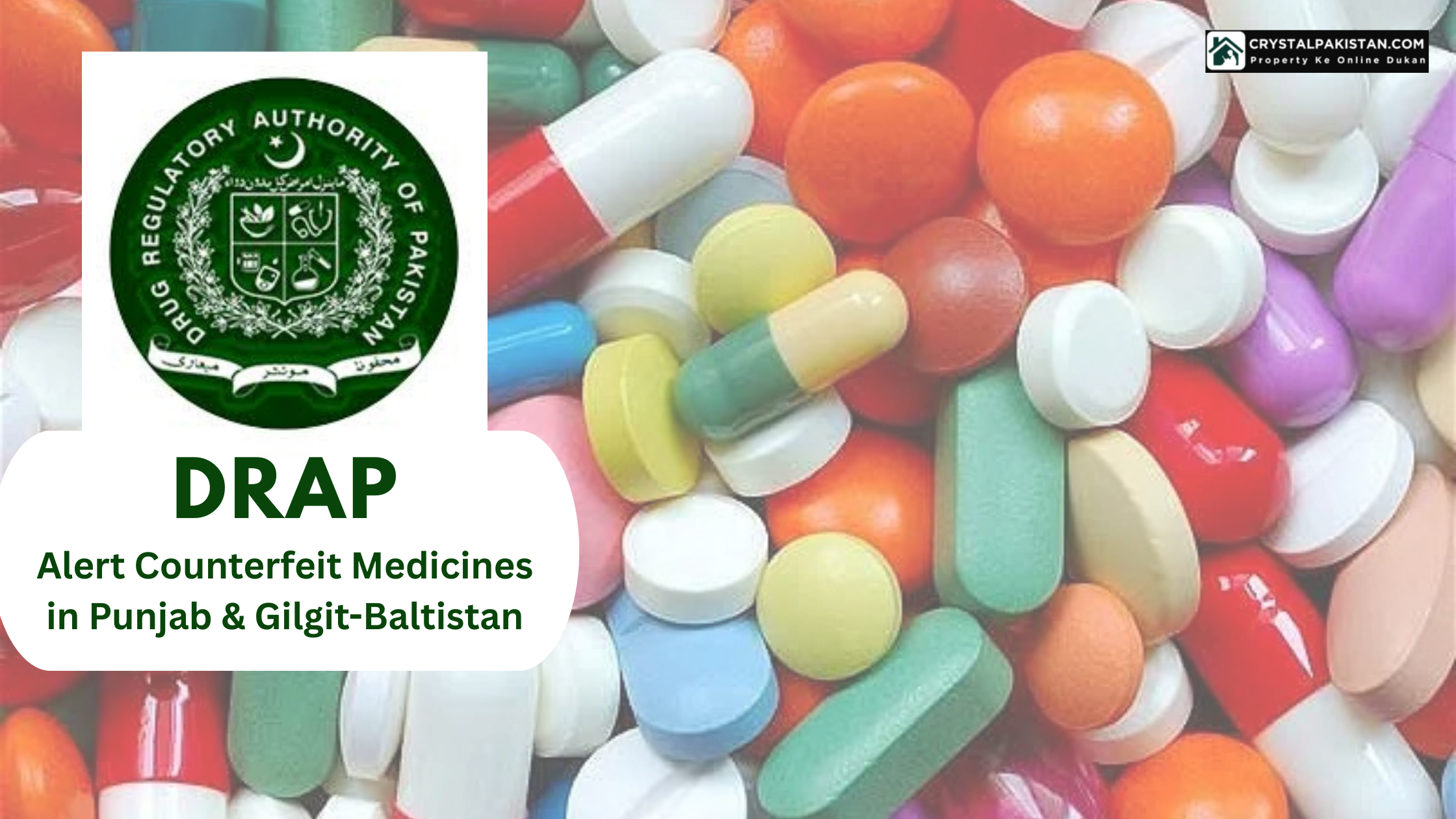Fake medications may look real, but they pose real danger. The Drug Regulatory Authority of Pakistan (DRAP) has issued a critical warning about spurious drugs circulating in Punjab and Gilgit-Baltistan that could put lives at risk.
In a recent rapid alert, the Drug Regulatory Authority of Pakistan (DRAP) has spotlighted a troubling trend: counterfeit medications impersonating popular pharmaceutical brands are circulating across Punjab and Gilgit-Baltistan. These spurious products, often promoted for treating infections, pain, digestive issues, or gynecological problems. They are confirmed fake by multiple drug testing laboratories after provincial health authorities raised alarms. The public is urged to stay alert, avoid unauthorized medicines, and report suspicious drugs immediately for their own safety.
What Are Counterfeit (Spurious) Medicines?
Counterfeit drugs are deceptive products that may contain no active ingredients, the wrong dosage, or harmful additives. These items not only fail to treat conditions but can also cause toxicity, drug resistance, or life-threatening complications. The WHO estimates that substandard or fake drugs contribute to antimicrobial resistance and widespread health risks globally.
Key Batches Identified by DRAP
Testing laboratories in Rawalpindi, Multan, Faisalabad, and Gilgit-Baltistan confirmed the following medicines as counterfeit:
| Medicine Name | Use/Condition | Batch Number |
| Brexin Tablets | Pain relief | 1192087 |
| Zetro 500mg | Throat infections | F18031 |
| Augmentin 625mg | Chest infections | 7F4W |
| Tonoflex-P | Pain relief | KFM145 |
| Feston 10mg | Gynecological conditions | 41160 |
| Gabica 300mg | Neuropathy | 403C27 |
| Amcomox Capsules | Throat infections | 08 |
| OmniDol N-Uk Tablets | Fever and pain | 1220 |
DRAP stresses that these products were falsely marked as being from licensed manufacturers and contain no therapeutic agents. Prolonged use could lead to worsening disease or fatal consequences.
Also Read Other Important Govt. Actions: RDA Seals Illegal Buildings & Enforces Dengue SOPs on Girja Road Rawalpindi
Health Hazards of Fake Medication
Using counterfeit medicines can have severe consequences:
- No therapeutic effect, delaying real treatment and worsening conditions.
- Potential toxic contamination, resulting in serious adverse reactions.
- Contribution to antimicrobial resistance, when subtherapeutic antibiotic levels promote drug-resistant pathogens.
DRAP’s Response & What to Do Next
DRAP and provincial drug control departments have:
- Launched a crackdown on distribution networks.
- Directed pharmacists and healthcare providers to inspect inventories for suspicious products.
- Called for immediate reporting of counterfeit cases via authorized pharmacovigilance systems.
How Consumers Can Protect Themselves
Here’s how to stay safe against fake drugs:
- Buy only from licensed pharmacies and authorized retailers.
- Check packaging carefully — watch for errors, misspellings, or damaged seals.
- Track batch and expiry numbers on drug labels and compare with confirmed alerts.
- Consult healthcare professionals if in doubt and report suspicious meds to DRAP or national pharmacovigilance centers.
Takeaways
The spread of counterfeit medicines in Pakistan is a serious public health threat. Even seemingly harmless pills can contain no active ingredients or dangerous additives, leading to treatment failures or worse. It’s crucial to shop smart, stay vigilant, and report issues immediately. By staying informed and cautious, everyone can contribute to safeguarding their health and our healthcare system.



Join The Discussion